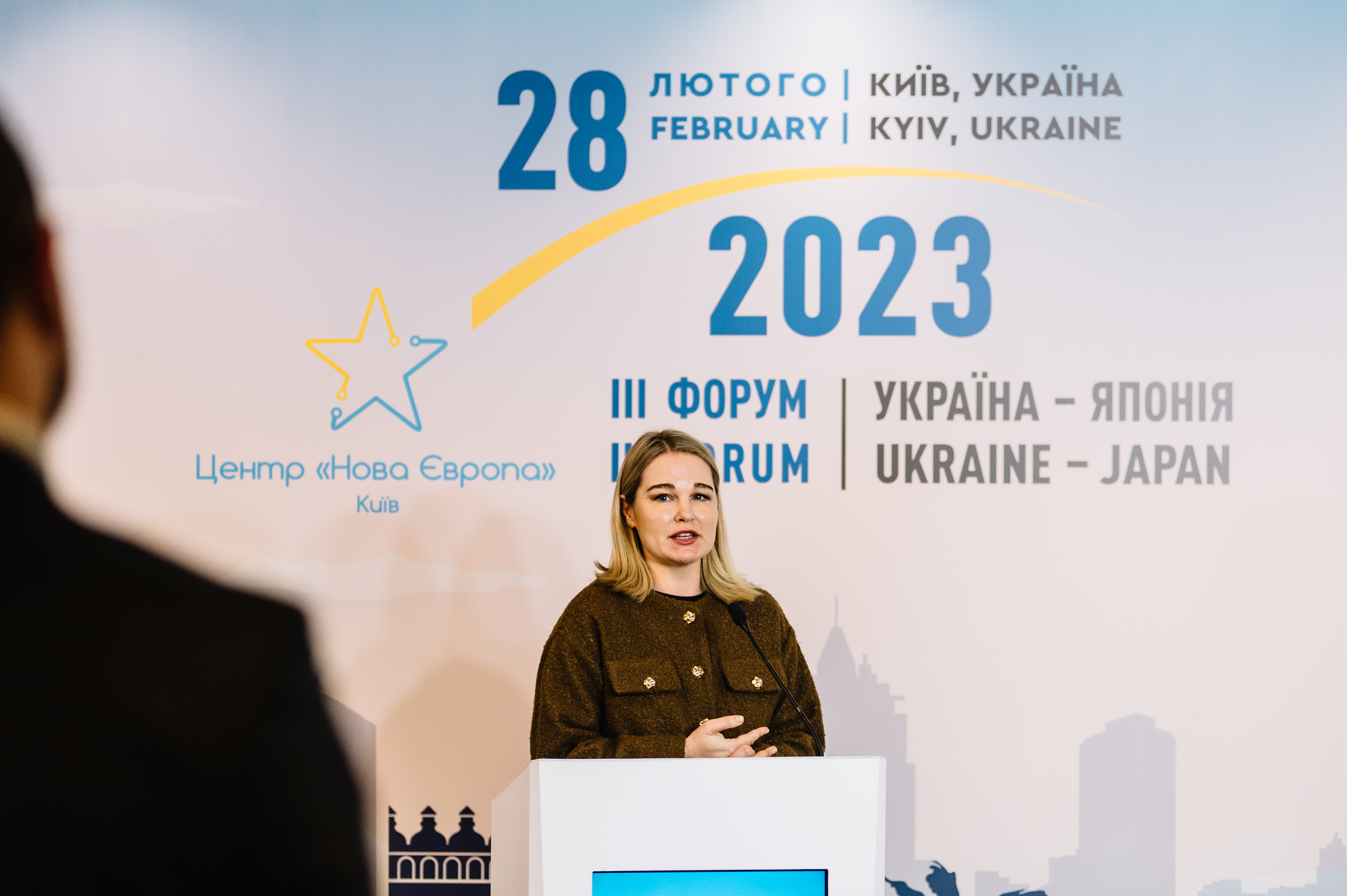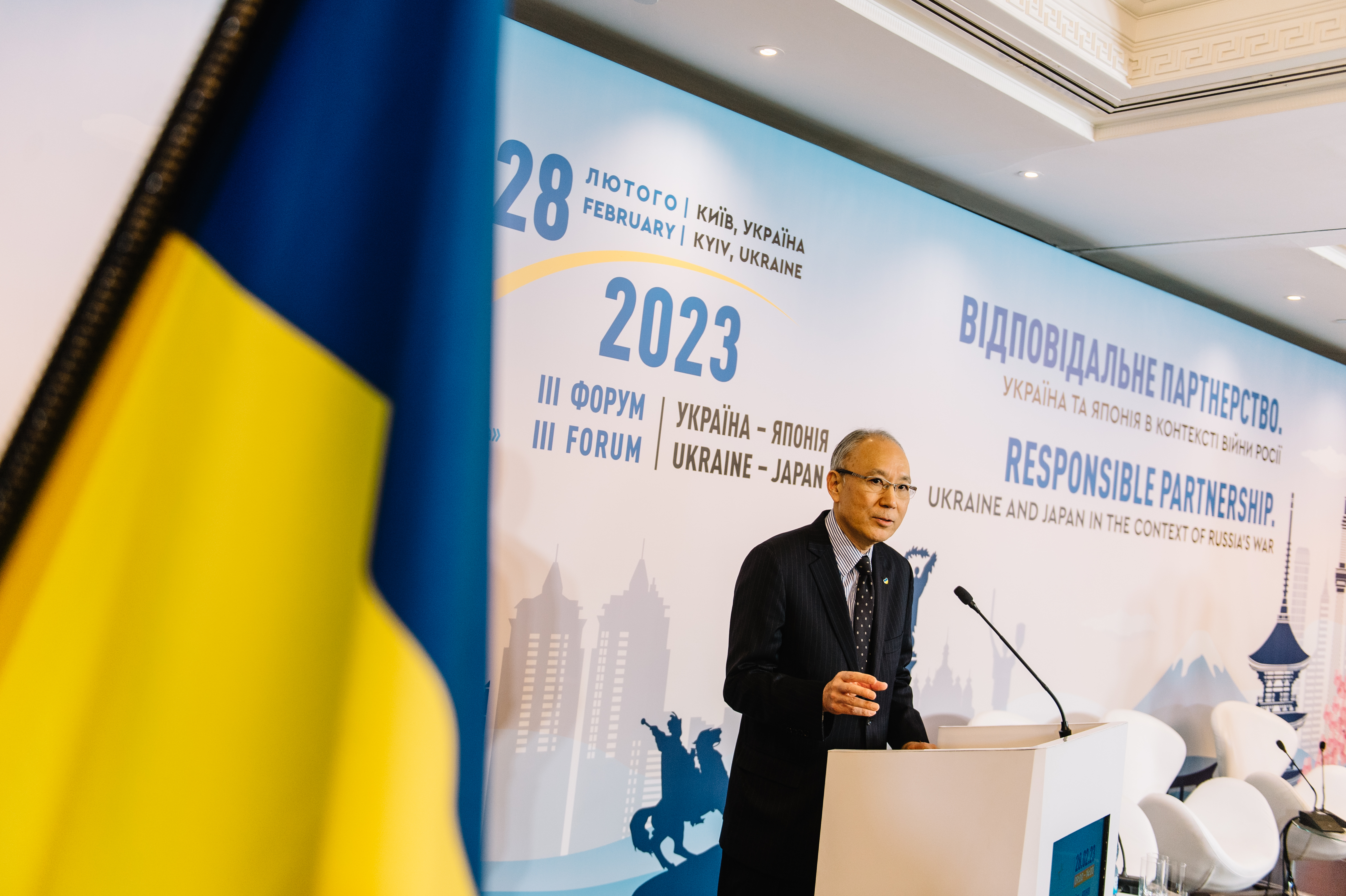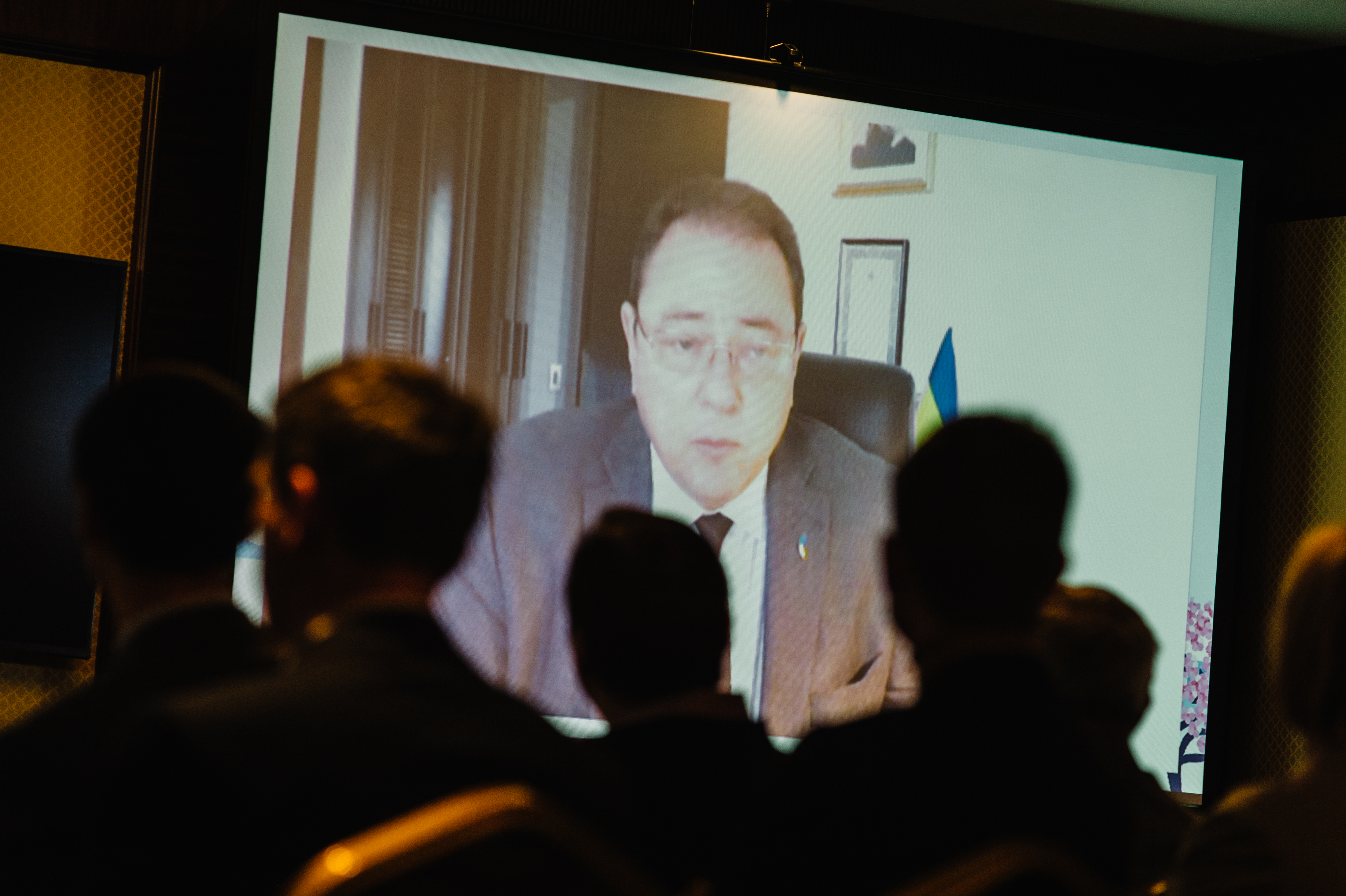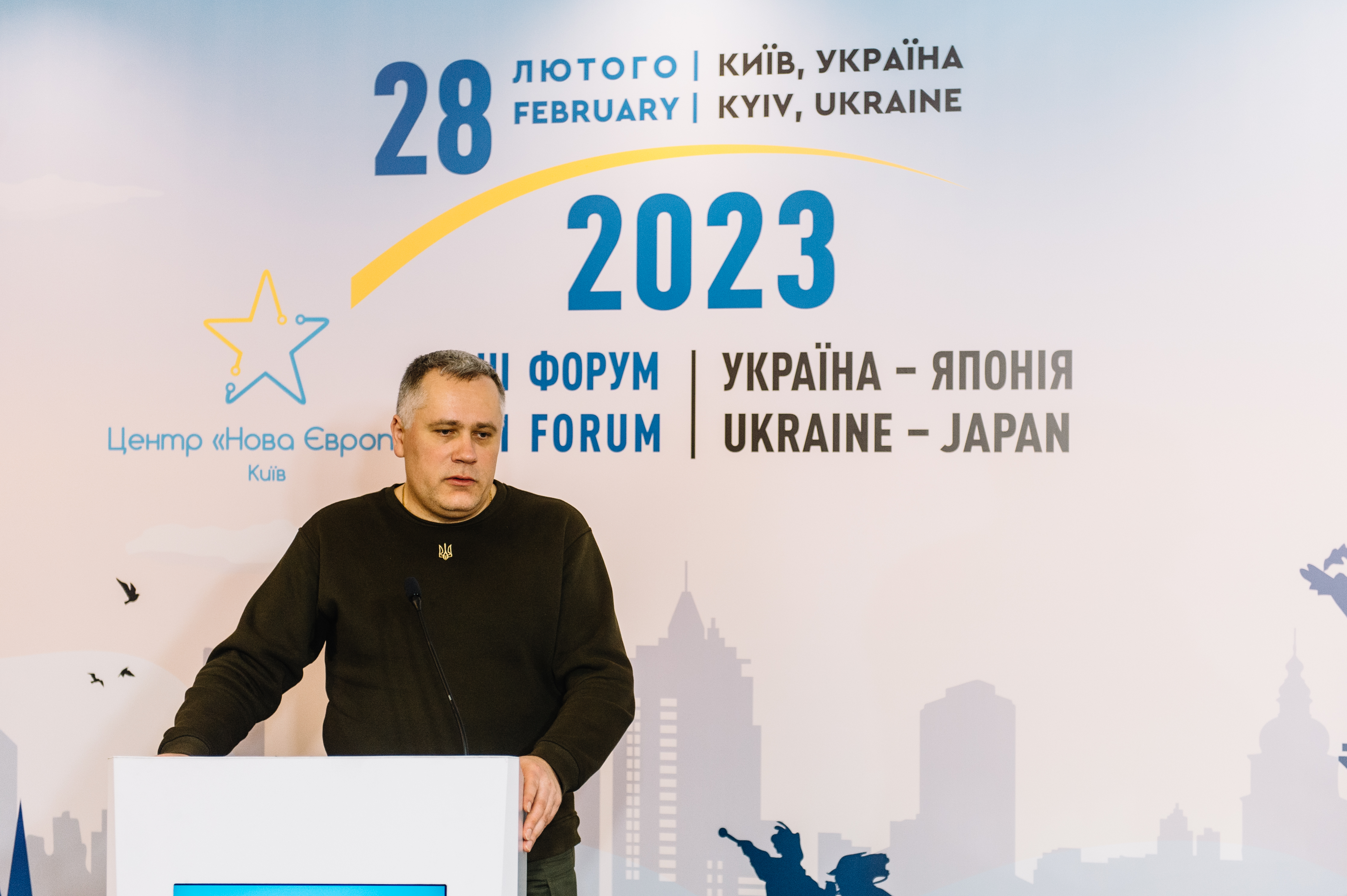We bring to your attention the key messages of the speakers during the opening of the Ukraine-Japan Forum.
Alyona Getmanchuk, Director of the New Europe Center:
The war with Russia is about responsibility because it is an existential threat to the international rules-based order and a challenge to democracy that unites Ukraine and Japan. It is about a response that cannot be neutral. You either support the aggressor who kills or support the victim of aggression.
In Japan, they understand well that this war is not about Ukraine or Europe. They understand its global consequences, including in the East Asia region. They understand that all the assistance provided to Ukraine is an investment not only in the security of Europe but also in the security of Japan.
In Japan, they believe in the victory of Ukraine. More than in some European capitals. They believe directly because of corresponding statements. They believe indirectly because of their unabashed enthusiasm for participating in the rebuilding of Ukraine. Japan is the only country in the democratic world where self-criticism has been heard: Japan could do more, we are not doing enough.
Japan is Ukraine’s most natural political ally in Asia, so relations with this region should be built on this fact. But we also believe that Japan can become one of Ukraine’s key political allies in the G7. And we believe that it is under Japan’s Presidency in the G7 that Ukraine’s victory will become a reality.

Matsuda Kuninori, Ambassador of Japan to Ukraine:
There is a difference between UA and Japan. In the case of Japan, we`re defeated so that’s why we reform our country. You`re going to win this war, so because of this victory you need to reform your country. And we`re ready to continue to work with Ukraine to help with the reforms, reconstruction, recoveries and much more.
Ukraine also needs a new horizon and that is Asia. We support the European future of Ukraine, but the world is much bigger than just Europe. Ukraine needs these opportunities beyond Asia. Asia can play an important role for the future of Ukraine.
What is currently happening to Ukraine could in time happen to East Asia. So, there is no such thing as neutrality – not only for Japan, but for any other country located in East Asia or anywhere in the world.
Japan, based on our experience after World War 2 understands that the key to success is always in reforms. After World War 2, after a miserable defeat, we, Japan, embarked on the largest reforms for 2000 years of history:
First, we dissolved Japanese oligarchy. Before the war, Japanese oligarchy practically ruled the Japanese economy. So, we dissolved big companies and created an equal conditions for business where small newcomers can easily enter the business arena.
Second, we came up with a special financial scheme, so that those, returning from abroad, could start their own businesses. Now, Japan’s economy is, actually, small and mid-sized companies – almost 90% of the Japanese economy was supported by them because of the robust job opportunities!
And third – we have selected 2 or 3 important industries as export-oriented. The reason is very simple – we needed our own foreign currencies and pay back our debt. And in the case of Japan, we selected, for example, textile industries, because Japan was known for textile industries even before the war. So, we had our textile industries, and then moved to other industries.

Sergiy Korsunsky, Ambassador of Ukraine to Japan:
The position of Japan that we are witnessing today is an unprecedented support that is based not only on the position of the government but also on the Japanese people. Public opinion polls throughout this year show that over 80% of Japanese support their government’s position on Ukraine. One figure that particularly impressed me is that 68% of Japanese respondents answered positively to the question of whether sanctions should be used against Russia even if it leads to price increases that would affect their own income and life.
Only two countries know what a nuclear catastrophe is. Japan experienced it, and Ukraine is constantly threatened by it. It is crucial for both Japan and Ukraine to bring this issue into a format where we can secure the future of our countries and the future of all civilized humanity from a nuclear catastrophe.
After the liberation of our territories, we hope that Japan will lead the process of forming a Reconstruction Fund for Ukraine. After that, Japanese companies will come with bridges, roads, and highways to Ukraine. I dream of a Shinkansen system where you can travel to Crimea and back in two hours. Japan’s experience in urban planning is very important. This will change the economy of Ukraine.
I want to call on all Europeans, regardless of their birthplace, geography, or mentality, to love Asia. 40% of EU trade routes pass through Asia, and this is billions of dollars. Therefore, Ukraine must be represented in Asia.
We are co-creators of the future world order. We have to solve the issue of EU and NATO membership, but beyond that, we have to build our position regarding such Asian “monsters.” Japan is our window to Asia, and we have to engage in political and economic relations with the countries of the region.

Ihor Zhovkva, Deputy Head of Presidential Office of Ukraine, Diplomatic Adviser to President Volodymyr Zelenskyy:
I would like to draw your attention to the final document of the latest G7 Summit on February 24 (under the chairmanship of Japan):
- Weapons. For the first time, specific types of weapons, which G7 members will use to support Ukraine, were listed (air defense systems, tanks, artillery, ammunition). Such details were not included in previous G7 statements.
- Peace. For the first time, all seven countries expressed their support for President Zelenskyy’s peace formula. Previous statements only referred to a just peace.
- Sanctions. Literally two hours before the start of this forum in Japan, the 18th package of sanctions was announced. Colleagues from the US, UK, and EU had previously adopted relevant packages. Japan is always ahead of other G7 countries in announcing sanction packages. Sanctions are one of our weapons and one of the building blocks of our victory.
Ukrainian initiatives supported by Japan:
- “Grain from Ukraine” initiative, which has already raised over $200 million. Japan immediately joined this initiative and allocated $14 million to ensure that Ukrainian grain from Ukrainian ports is delivered to the poorest countries in Africa and Asia. This is a good example of how Ukraine is looking not only to Europe but also to Asia and Africa.
- Crimean Platform (in formats of the leaders’ summit, parliamentary speakers’ summit, etc.). This format has already reached all five parts of the world and involves representatives from Asian, African, Latin American, and European countries. This platform will be used not only for the issue of de-occupation of Crimea. Other countries will be able to use this tool to put the issue of the occupation of parts of their territories on the agenda (such as the Northern Territories of Japan).
In 2011, the global partnership between Ukraine and Japan was established. During the war, this partnership gained new colors and new speed. Ukraine is living much faster today than most of the world, and we want other countries to live at least half as fast as Ukraine. I am confident that Japan lives at almost the same speed as we do.
The experience of how Japan was rebuilt after the war and became a leading country in several dimensions (economic, technological, intellectual) is an example that deserves attention, and these are the advantages that Ukraine will definitely take for itself.

The Third Ukraine-Japan Forum was held on February 28, 2023. During the event, analysts and academics from Japan and Ukraine discussed issues related to the broader security environment in which both countries are operating today, as well as bilateral relations in the context of the ongoing Russian war in Ukraine.
Also, during the Forum, the discussion paper “Responsible Partnership. How Russian war can reshape Ukraine-Japan relations” prepared based on the results of an advocacy visit of the New Europe Center experts to Japan, was presented.
Video recording of the Forum is available in Ukrainian and in English.







